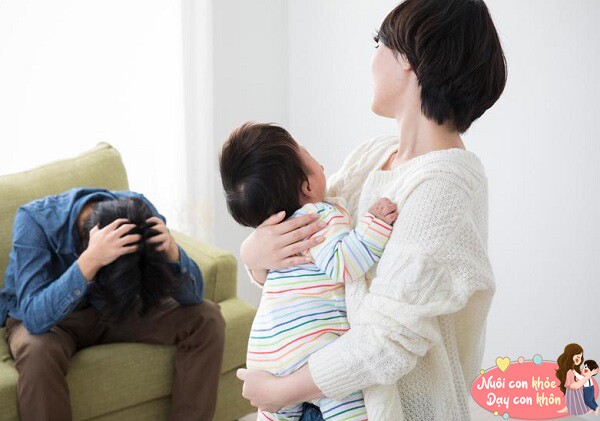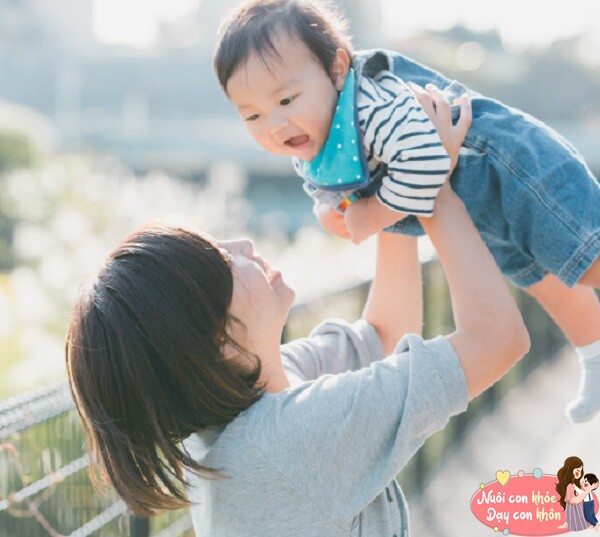Why planning and choosing the right time to have a baby is important
Having a baby is a significant event that affects the happiness of the entire family, and not all times are suitable. Making a hasty decision to have a child without considering the timing can cause unnecessary stress on the child’s health, the parents’ mental well-being, and the family’s financial situation.
However, choosing the right time can bring blessings to the family and ensure a smoother pregnancy and parenting journey for the mother.
The following are key points on the timing that can make a child a “lucky baby” and provide a smoother journey for the mother as well:

When the parents are at the optimal age for childbirth
The age of the parents plays a crucial role in the child’s health and the mother’s recovery. The optimal age range for men is typically 28-35 years old, while for women, it is 23-32 years old. During these years, the body’s functions are relatively robust, and pregnancy and childbirth are more favorable for both the fetus and the mother.

Children born at the right time and under favorable conditions will have a smoother path as they grow up.
Benefits for the child
– Reduced risk of birth defects and health issues, leading to a healthier and more intelligent child.
– Stronger immune system and better adaptability to the environment after birth.
Benefits for the mother
– Lower risk of pregnancy complications, allowing for a smoother pregnancy journey.
– Faster post-partum recovery, with the body more easily returning to its pre-pregnancy state and fewer long-term effects.
Therefore, choosing to have a baby when both parents are within the optimal age range can bring advantages for both the mother and the child.

When the family’s financial situation is relatively stable
Economic foundations determine the superstructure, and this is especially true when it comes to choosing to have a baby. After a child is born, family expenses increase significantly, especially in the first few years of the child’s life. Baby supplies, medical expenses, and education costs are all factors that families need to consider financially.
When the financial burden is lighter
– The mother can receive better care during pregnancy and after birth without financial worries.
– The child will grow up in a higher-quality environment, receiving better nutrition and education.
– The father will experience less stress, leading to a happier and more harmonious family life.
On the other hand, when economic pressure is high
– The pregnant mother may need to continue working during pregnancy, and without adequate rest and recovery, her health may suffer.
– The father will face significant financial pressure, and the family atmosphere may become tense, affecting the marital relationship.
Therefore, it is best for the father to ensure a stable financial situation before having a child, as this will bring luck to both the mother and the baby.

When parents lack the financial means to raise a child, it adds pressure and stress to the family.

When the marriage is stable and the marital relationship is harmonious
A child is the crystallization of love between a husband and wife. When the marriage is stable and the relationship is harmonious, the child will grow up in a healthy environment filled with love. If the relationship between the spouses is not good, having a baby can add stress to the family.
Benefits of parental love for the child
– The child grows up in a loving family environment, with parents who respect and care for each other, leading to a sense of security and happiness.
– The child’s mental health develops positively, and they are less likely to be affected by negative emotions.
Potential risks of an unstable marriage
– If the parents frequently argue, having a baby can exacerbate the conflict and even lead to divorce. The child will then grow up in a single-parent family, which can profoundly affect their mental and emotional health.
Therefore, when the marital relationship is harmonious and stable, and a child is born, not only is the child “blessed,” but the parents also enjoy the joy of raising them.

A comfortable season for the child’s development
Temperature variations and seasonal changes throughout the year will directly impact the comfort of the mother and the baby. Generally, summer and winter are more challenging times for childbirth, especially with extreme temperatures. The heat of summer and the cold of winter can be uncomfortable for both mother and child.
Challenges of giving birth in summer
During the summer, mothers must avoid catching colds and endure the oppressive heat. While air conditioning and fans can provide relief, mothers are advised against direct exposure to cool air as it can lead to colds or other illnesses.
– For newborns, their immune systems are weaker, and they are more susceptible to illnesses during summer. The hot weather and mosquito bites can also affect their health.

With proper preparation, both mother and baby can fully embrace the happiness that life has to offer.
Winter woes
– In winter, extremely low temperatures can make it easier for both the child and mother to catch a cold.
– The cold weather can also make it more difficult for the mother to move around and affect her physical recovery.
In comparison, spring and autumn are more ideal seasons for childbirth
– Moderate temperatures and smaller day-night temperature variations make for a more comfortable newborn stage for both mother and baby.
– The mild weather in spring and autumn aids the mother’s recovery and reduces the likelihood of the baby falling ill.
Having a baby at the right time not only increases the happiness of the mother and child but also contributes to a more harmonious family life. For the sake of the child’s health and the family’s well-being, experts advise parents to plan carefully and choose the best time to conceive and give birth.
Deciding to have a child is not just a simple choice; it involves numerous considerations and preparations. With thorough planning, families can fully embrace the happiness that life has to offer.






































